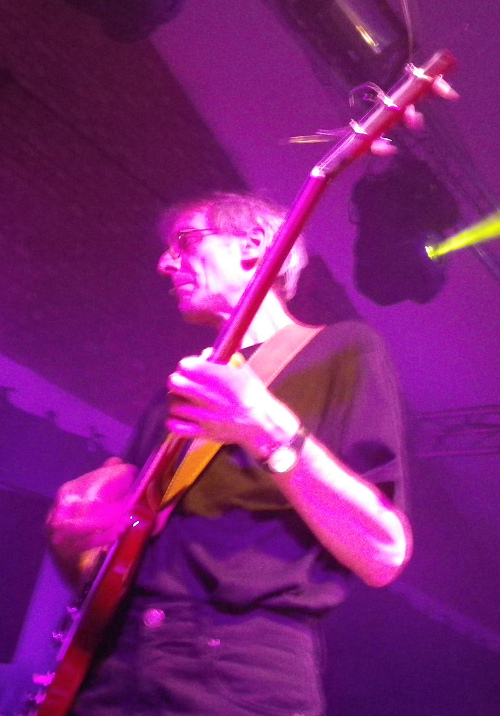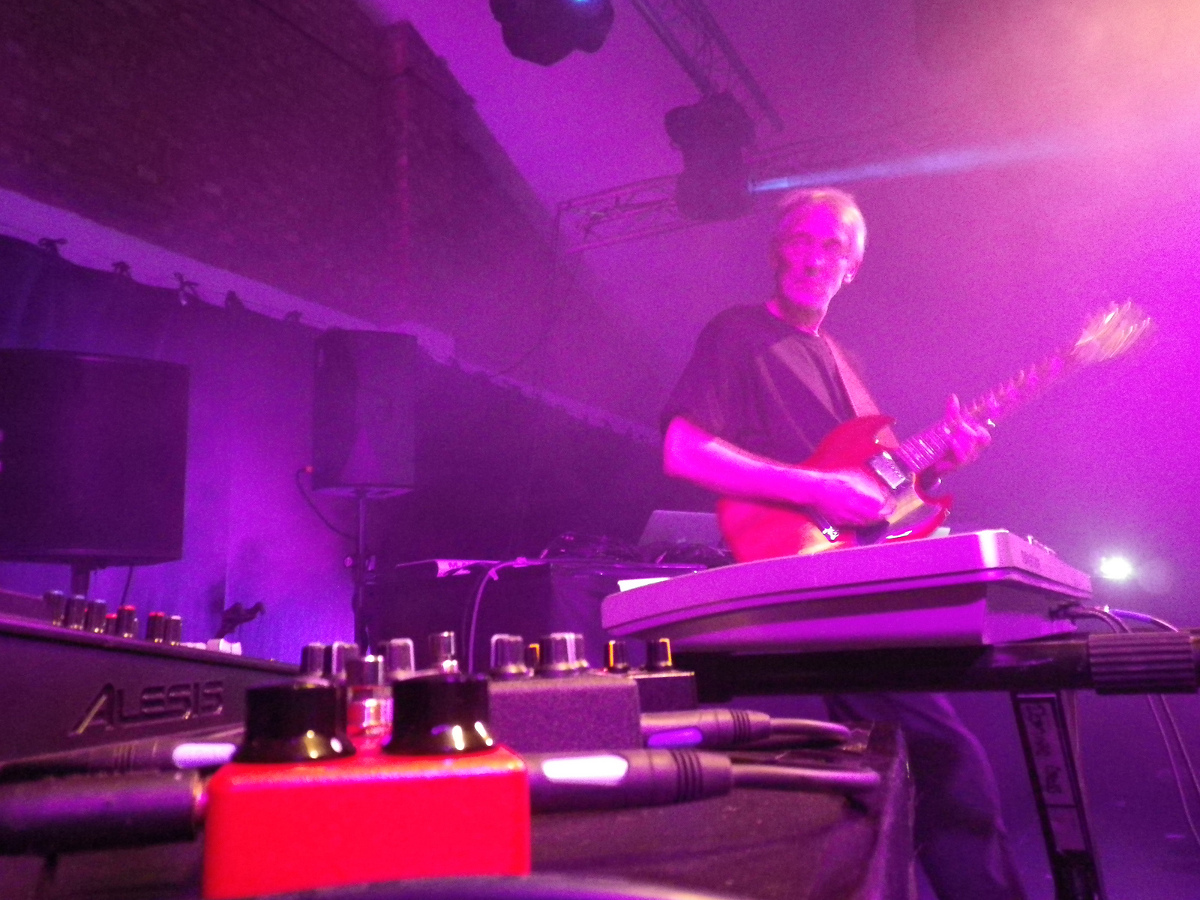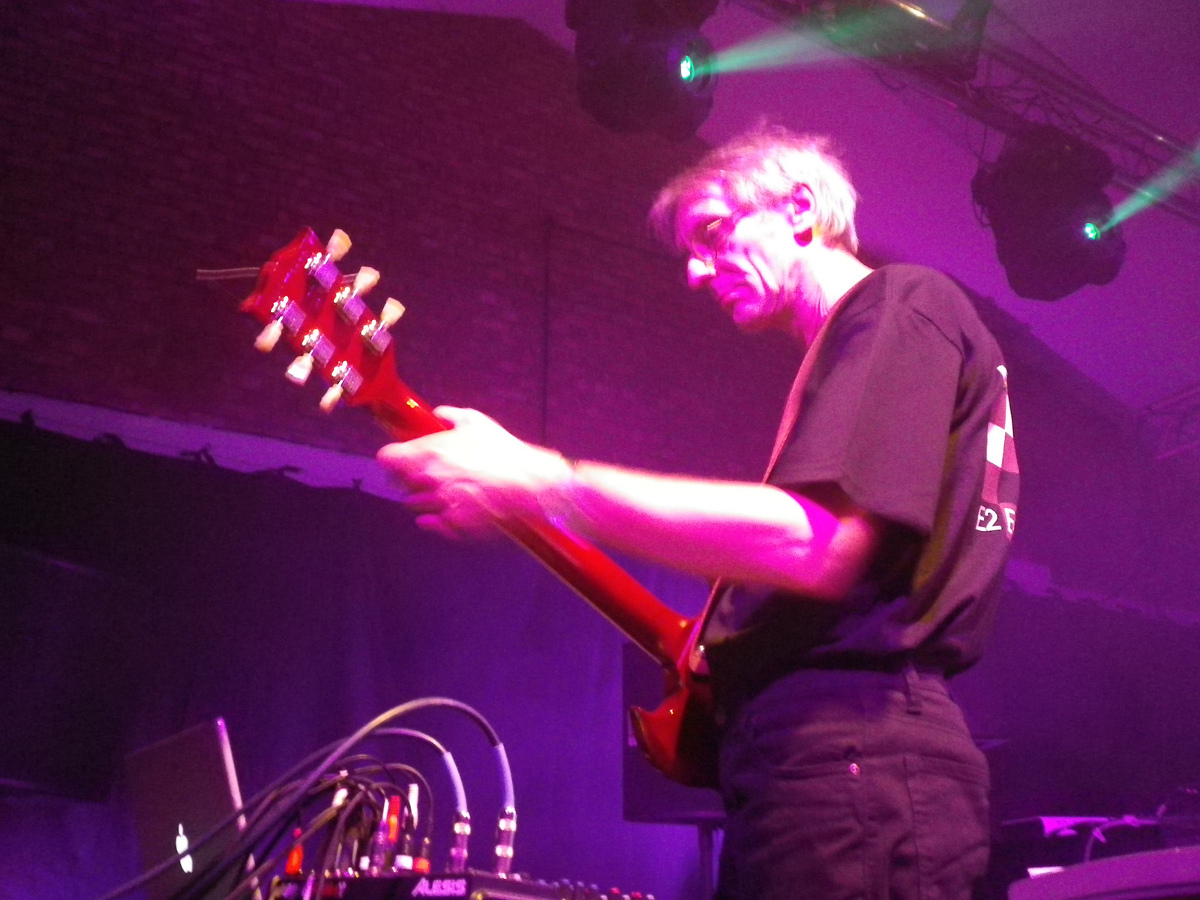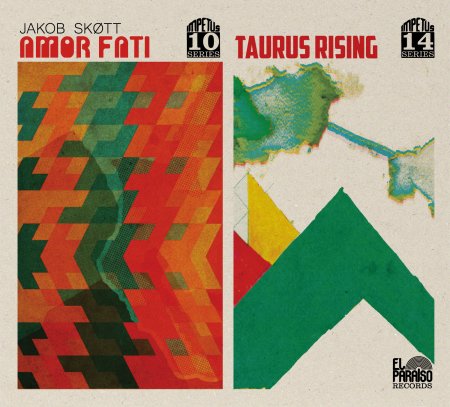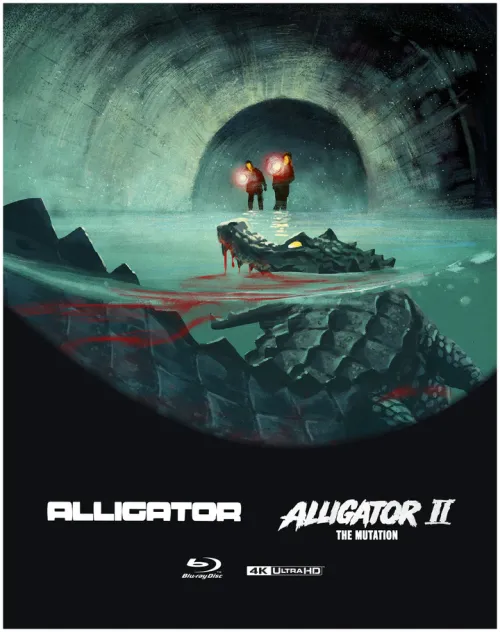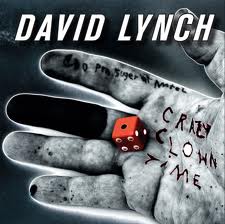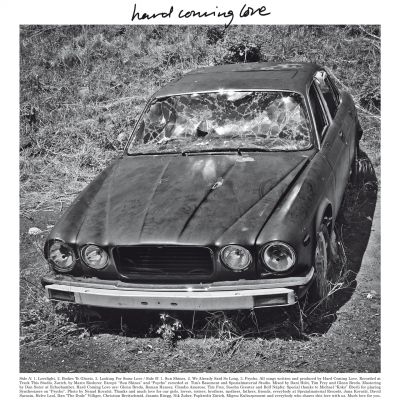In the lead up to the first London gig in thirteen years from Manuel Göttsching we have been treated to a certain amount of media nonsense situating him as a godfather of minimal techno. We suspect that this may have less to do with the ever-disappointing E2-E4 than the packaging of the evening’s bill by Need2Soul and Oval Space Music to justify matching Göttsching with Schwarzmann. There isn’t a lot to be said about Schwarzmann, as it is hardly necessary to reiterate the commonplace that watching two guys standing behind Macbooks looking pleased with themselves is hardly the most engaging spectacle.
Quite apart from the material, which is descended from the sequencer railtrack of E2-E4, Göttsching had been experimenting for many years with minimalist structures that broke away from the freak-outs of the original Ash Ra Tempel. First with his Inventions For Electric Guitar in 1974, and then a handful of releases as Ashra which were either solo or accompanied by fellow travellers such as Lutz “Lüül” Ulbrich of Agitation Free and Harald Grosskopf. As well as developing a fluid melodic guitar style that was clearly influential upon Steve Hillage, these albums also made use of cutting edge sequencing and synthesis. Looking at Göttsching’s compositions in this light E2-E4 is merely a station in the sequence of hybrid instrumentations that were intended to act as a launchpad to escape from the restrictions of the traditional rock band format.Göttsching’s set tonight was a sandwich wherein the bread was composed from material derived from the DNA of that E2-E4 moment, here controlled by the ubiquitous Macbook and Novation controller keyboard, while the meat was provided by a couple of pieces from the seminal Ashra Blackouts album: “Shuttle Cock” and “Midnight on Mars.” When Göttsching picks up his cherry red Gibson SG for the latter we can appreciate the extent to which he is a melodic player. There’s a lot of movement, especially up above the twelfth fret. His playing has never been about drones but about animation and accumulation. The resulting flow is minimal in macrocosm but the detail is constantly evolving. Harmonically it resembles jazz more strongly than rock.
The choice of tracks from Blackouts makes perfect sense as this is a solo gig, and Blackouts is ostensibly a solo album where Göttsching plays “sequencer, keyboards and a lot of guitar”. Göttsching continues to play regularly with other musicians including Grosskopf in other arrangements of old and new material, but here it is the solo Ashra that is on display.As with Agitation Free earlier this year, it is problematic situating Manuel Göttsching within the generic confines of the twenty-first century. At the time when this music was developing, it was elusive, hybrid and unconcerned with marketing strategies, unlike some younger musicians, and it would seem, promoters.
-Iotar-
